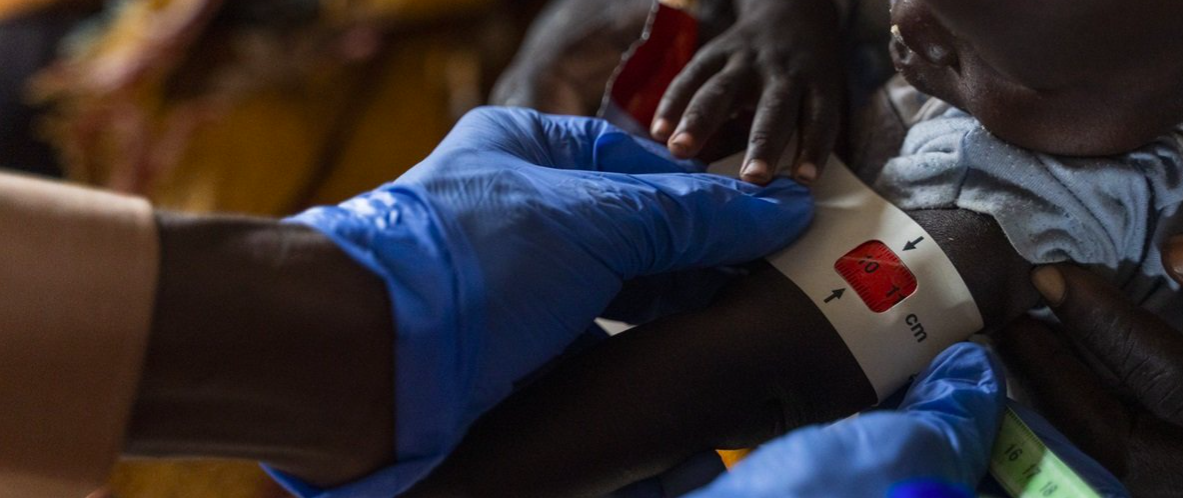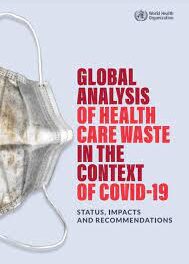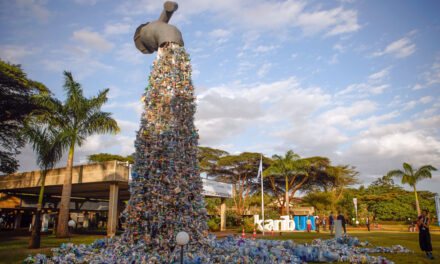
UNHCR, the United Nations Refugee Agency, and the World Health Organization (WHO) are once again raising alarm about the deteriorating health situation stemming from the crisis in Sudan.
Reports from UNHCR teams in Sudan’s White Nile state indicate that over 1200 refugee children under the age of 5 have lost their lives in 9 camps between May 15 and September 14. This tragic outcome is a result of a suspected measles outbreak combined with severe malnutrition. Additionally, during the same period, there were over 3100 suspected cases reported. In other parts of the country, more than 500 suspected cases of cholera have been reported, alongside outbreaks of dengue and malaria, amidst heightened epidemic risks and challenges for epidemic control.
Filippo Grandi, the United Nations High Commissioner for Refugees, emphasized, “The resources and funding exist to prevent every one of these measles or malnutrition-related deaths. However, each day we witness the loss of dozens of children due to this devastating conflict and insufficient global attention. We have the capacity to prevent further loss of life, but it requires funding for the response, accessibility to those in need, and most importantly, an end to the conflict.”
Health facilities are on the brink of collapse due to shortages in staff, life-saving medications, and critical equipment. This exacerbates existing outbreaks and leads to avoidable deaths. Ongoing attacks on healthcare, including on personnel, patients, and the transport of medical supplies, further hinder the delivery of essential health services.
Dr. Tedros Adhanom Ghebreyesus, Director-General of WHO, stressed, “Local health workers, with the assistance of WHO and partners, are exerting extraordinary efforts under incredibly challenging conditions. However, they urgently require the support of the international community to prevent further loss of life and halt the spread of outbreaks. We call on donors to be generous, and on warring parties to safeguard health workers and ensure access to healthcare for all those in need.”
In Renk, South Sudan, humanitarian partners have noted a rise in cases of children arriving with measles and high levels of malnutrition from Sudan, primarily from White Nile. The malnutrition crisis in the country is escalating rapidly. Across South Sudan, there have been over 5770 suspected cases of measles, resulting in 142 deaths. Children under 5 years of age are the most severely affected, accounting for nearly 70% of all cases and 76% of all deaths. Half of these affected children had not received vaccinations against measles, underscoring gaps in immunization, especially among returnees and refugees. On average, 103 children per month were admitted to health facilities for moderate or severe malnutrition between May and July, a significant increase from the 14 admissions prior to the conflict.
The situation is equally concerning in Ethiopia’s Amhara region, where a cholera outbreak in Metema is rapidly escalating in sites hosting over 18,000 people who have fled the conflict in Sudan. As of September 12, 8 individuals have succumbed to cholera among 435 reported suspected cases. Stocks of cholera vaccine for routine immunization are also running low, placing refugees at greater risk of infection. The shortage of ambulances for patient transport and referral, insufficient medical equipment for treatment, and a dearth of critical healthcare staff are jeopardizing lives and severely impeding the humanitarian response.
In a recent screening effort in Chad, nearly 13,000 children under the age of 5 were found to be suffering from acute malnutrition. The number of malnourished children admitted to hospitals has risen by 56% across the province of Ouaddai, which hosts over 80% of the refugees, since the onset of the conflict in Sudan. The high prevalence of malnutrition among incoming refugees underscores the dire situation of those fleeing Darfur into Chad. Additionally, acute respiratory infections, diarrhoea, and malaria remain the three most common illnesses among children. Access to clean drinking water is also a major challenge, with families receiving only one-third of the recommended 15 litres per person.
UNHCR, WHO, and their partners are working tirelessly to provide urgent assistance within Sudan and across borders to prevent further loss of life. Ongoing efforts include food distribution and measles vaccinations for children under 5 years old in camps in Blue and White Nile states, with over 53,000 children vaccinated. In Chad, two measles vaccination campaigns have already reached 1.2 million children. WHO and its partners have launched an oral cholera vaccination campaign in Amhara, Ethiopia. WHO is also supporting stabilization centers by supplying materials for the treatment of severe malnutrition. Urgently needed health supplies have been provided in South Sudan, Ethiopia, and Chad, including vital medicines, medical supplies for cholera and malnutrition treatment, and tents for mobile health clinics. Reproductive health kits, mental health care, and psychosocial support are also being prioritized. In Ethiopia, cholera kits have been dispatched to Metema, and an isolation tent and nursing station are being set up.











